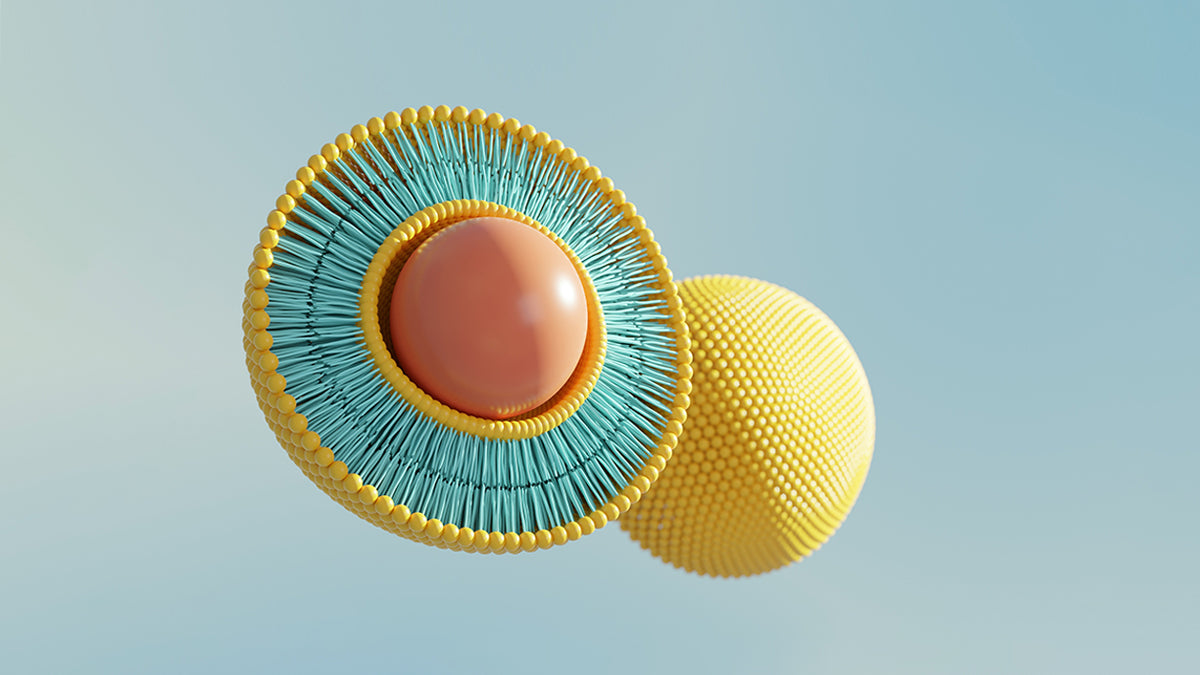Introduction
In the quest for longevity and overall well-being, the relationship between metabolic health and lifespan is increasingly gaining attention. Metabolic health refers to the state of optimal functioning of metabolic processes in the body, including those related to glucose metabolism, lipid metabolism, and energy balance. Research suggests that maintaining metabolic health plays a pivotal role in extending healthspan and lifespan and reducing the risk of age-related diseases such as diabetes, cardiovascular diseases, and neurodegenerative disorders. While lifestyle factors such as diet and exercise, undoubtedly play crucial roles, emerging research suggests that certain natural compounds can complement these efforts and potentially amplify their benefits. One such compound that has gained significant attention in recent years is berberine.
Berberine is a bioactive compound found in several plants, including goldenseal, barberry, and Oregon grape. It has a long history of use in traditional Chinese and Ayurvedic medicine for its various health benefits. However, only in recent years have scientists delved into the mechanisms underlying its varied benefits for longevity and overall well-being.
Metabolic Health and Beyond: Research and Evidence
Berberine's impact on metabolic health is multifaceted, known as the ‘Cloud Effect’, with studies demonstrating its ability to improve insulin sensitivity, regulate blood sugar levels, and reduce cholesterol levels. These effects are particularly promising for individuals with metabolic syndrome, a cluster of conditions including obesity, high blood pressure, and insulin resistance, which significantly increase the risk of developing type 2 diabetes and cardiovascular disease.
One of the primary mechanisms through which berberine exerts its metabolic effects is by activating an enzyme known as AMP-activated protein kinase (AMPK). This enzyme is essential for regulating cellular energy, enhancing glucose absorption, burning fatty acids, and creating new mitochondria. By triggering AMPK, berberine helps balance cellular energy, which can reduce insulin resistance and enhance metabolic function.
In animal studies, berberine demonstrates both neuroprotective and cardiovascular protective properties. Research conducted by Tan et al. (2013) revealed that berberine is swiftly distributed throughout various organs in rats, with the highest concentrations found in the brain, lungs, heart, liver, kidneys, muscle, pancreas, and fat, in descending order. The mechanism underlying berberine's effects involves its modulation of cellular targets, including those involved in managing cholesterol, insulin, energy, and fat storage. 8,9,11
Recent clinical and laboratory trials further supported the above evidence, showing that oral administration of berberine resulted in marked reductions in hepatic (liver) fat content, body weight, and improved lipid and glucose metabolism profiles in individuals with non-alcoholic fatty liver disease (NAFLD). This suggests that berberine could be a promising treatment, not only for NAFLD, but also for other metabolic conditions linked to it.10,12
In one remarkable study, the effectiveness of berberine was compared to the common diabetes medication metformin. Participants either took 500 milligrams of berberine two to three times daily for three months or received metformin. Berberine demonstrated similar control over blood sugar and lipid metabolism as metformin, leading researchers to label it a "potent oral hypoglycemic agent".11
Another study found that when combined with red yeast rice, known for its natural cholesterol-lowering properties, berberine could offer a wider spectrum of cholesterol protection with a reduced risk of severe adverse effects compared to prescription statin therapy.6
Berberine’s Effect on Gut Microbiota
It doesn’t stop there though. Additionally, berberine has been shown to modulate the gut microbiota, the community of microorganisms residing in the gastrointestinal tract. Emerging research suggests that the composition of the gut microbiota plays a significant role in metabolic health, influencing energy metabolism, inflammation, and insulin sensitivity. Berberine's ability to reshape the gut microbiota towards a more favourable profile may contribute to its metabolic benefits.12
The interaction between gut microbiota and berberine occurs through two main pathways: berberine regulates the composition of gut microbiota, and gut microbiota metabolizes berberine. These interactions can serve as direct targets for improving diseases. Besides these direct interactions, berberine may also affect the function of the intestinal barrier and the activity of the cell protector, P-glycoprotein. These two targets can indirectly impact disease development and directly influence the movement of berberine throughout the body.1,12
Longevity Benefits of Berberine
Beyond its effects on metabolic and gut health, berberine has also demonstrated potential benefits for longevity.2 Several studies have highlighted its ability to activate longevity pathways such as sirtuins and AMPK (as mentioned above), which are involved in cellular stress response and longevity regulation. By activating these pathways, berberine may help to enhance mitochondrial function, improve cellular metabolism, mitigate age-related decline, and promote healthy aging and longevity.
Moreover, berberine exhibits potent antioxidant and anti-inflammatory properties, which are known to play key roles in aging and age-related diseases.5 Oxidative stress and chronic inflammation are implicated in various age-related conditions, including neurodegenerative diseases, cardiovascular disease, and cancer. By scavenging free radicals and modulating inflammatory pathways, berberine may help to protect against these age-related processes and promote longevity. 2,5
Absorption and Bioavailability
Despite its promising health benefits, berberine faces challenges in terms of low bioavailability. Poor absorption, rapid metabolism, and rapid systemic elimination are responsible for low plasma and tissue levels of berberine. To address this issue, various approaches have been explored by researchers to enhance the bioavailability of berberine. One such strategy is using a phytosome complex.
A phytosome is a complex formed by binding a plant-derived compound, typically a phytochemical or a botanical extract, to a phospholipid molecule. This process is often used to enhance the bioavailability and absorption of the phytochemical compound.
Phospholipids are natural components of cell membranes, and when they are combined with phytochemicals, they can form structures known as phytosomes. These structures have been shown to improve the solubility of the phytochemical in water, which can enhance its absorption in the gastrointestinal tract. Petrangolini et al., (2021) demonstrated that berberine bioavailability was significantly higher, around 10 times, when using a berberine phytosome compared to the unformulated berberine.7
Now, a next generation phytosome delivery system, known as Berbevis®, has been developed which is specifically designed in accordance with the unique properties of berberine, with 3 innovative features.
The first feature is the use of pea proteins as a as carrier within the Phytosome® matrix that greatly helps berberine bio-absorption.
The second feature is the use of raw berries from Berberis aristata as a starter extract. This has been shown to be more soluble in gastrointestinal fluids than pure berberine.
Thirdly, grape seed extract is combined in the matrix as a powerful, natural antioxidant to protect the intestinal mucosa against the known gastrointestinal adverse effects of traditional berberine, optimising its tolerability.8
These features make Berbevis a well-tolerated and highly bioavailable berberine formula safe for long-term use.
Practical Application and Dosage
So, what dosage should you be taking?
There is currently no established dosage for berberine supplements. However, most studies cited, administered 1,000–1,500 mg per day. 3,4
It is important to keep in mind that berberine has a half-life of several hours, so it doesn’t last in your system for too long. Therefore, taking it in split doses will help keep stable levels in your blood. This might look like a dose of 500 mg taken 3 times per day before meals.
To maximise its benefits, berberine should be consumed with a meal or soon after, effectively managing the rise in blood glucose and lipids typically seen after eating.
Interactions and Precautions
Berberine has the potential to interact with specific medications, including those prescribed for diabetes, high blood pressure, or liver conditions. It's important to inform your healthcare provider about all your medications to avoid any potential interactions.
Future Directions and Conclusion
Research is intensifying to fully understand the mechanisms of berberine's action and its long-term effects on health and longevity. Clinical trials exploring its efficacy in different populations and disease states are helping to further understand its full benefits.
The development of advanced delivery systems, such as Berbevis, will undoubtably assist in optimising berberines therapeutic potential.
Take Away
Berberine represents an exciting natural compound with the potential to improve metabolic health and promote longevity. It is proven to possess antibacterial, anti-inflammatory, antimicrobial and blood glucose-lowering effects.
This ‘Cloud Effect’ of Berberine means it has multifaceted therapeutic actions with positive impacts on insulin sensitivity, gut microbiota, and longevity pathways. Therefore, benefits include lowering cholesterol, addressing diabetes, combating obesity, supporting heart and gut health, and protecting against neurological diseases. This highlights that its therapeutic potential not only addresses age-related conditions but also enhances overall well-being.
Written by, Danny Urbinder.
References
1.Cheng, H., Liu, J., Tan, Y., Feng, W., & Peng, C. (2021). Interactions between gut microbiota and berberine, a necessary procedure to understand the mechanisms of berberine. Journal of Pharmaceutical Analysis. https://doi.org/10.1016/j.jpha.2021.10.003
2.Dang, Y., An, Y., He, J., Huang, B., Zhu, J., Gao, M., Zhang, S., Wang, X., Yang, B., & Xie, Z. (2020). Berberine ameliorates cellular senescence and extends the lifespan of mice via regulating p16 and cyclin protein expression. Aging Cell, 19(1), e13060. https://doi.org/10.1111/acel.13060
3.Dong, H., Wang, N., Zhao, L., & Lu, F. (2012). Berberine in the Treatment of Type 2 Diabetes Mellitus: A Systemic Review and Meta-Analysis. Evidence-Based Complementary and Alternative Medicine, 2012, 1–12. https://doi.org/10.1155/2012/591654
4.Lan, J., Zhao, Y., Dong, F., Yan, Z., Zheng, W., Fan, J., & Sun, G. (2015). Meta-analysis of the effect and safety of berberine in the treatment of type 2 diabetes mellitus, hyperlipemia and hypertension. Journal of Ethnopharmacology, 161, 69–81. https://doi.org/10.1016/j.jep.2014.09.049
5.Liu, C., Jiang, S., Wang, H., Wang, Y., Han, Y., & Jiang, J. (2022). Berberine exerts protective effects on cardiac senescence by regulating the Klotho/SIRT1 signaling pathway. Biomedicine & Pharmacotherapy, 151, 113097–113097. https://doi.org/10.1016/j.biopha.2022.113097
- McCarty, M. F., O'Keefe, J. H., & DiNicolantonio, J. J. (2015). Red Yeast Rice Plus Berberine: Practical Strategy for Promoting Vascular and Metabolic Health. Alternative therapies in health and medicine, 21 Suppl 2, 40–45.
7.Petrangolini, G., Corti, F., Ronchi, M., Arnoldi, L., Allegrini, P., & Riva, A. (2021). Development of an Innovative Berberine Food-Grade Formulation with an Ameliorated Absorption: In Vitro Evidence Confirmed by Healthy Human Volunteers Pharmacokinetic Study. Evidence-Based Complementary and Alternative Medicine, 2021(7563889, 10), 1–10. https://doi.org/10.1155/2021/7563889
- Tan, X.-S., Ma, J.-Y., Feng, R., Ma, C., Chen, W.-J., Sun, Y.-P., Fu, J., Huang, M., He, C.-Y., Shou, J.-W., He, W.-Y., Wang, Y., & Jiang, J.-D. (2013). Tissue Distribution of Berberine and Its Metabolites after Oral Administration in Rats. PLoS ONE, 8(10), e77969. https://doi.org/10.1371/journal.pone.0077969
9.Thomas, A., Kamble, S., Deshkar, S., Kothapalli, L., & Chitlange, S. (2021). Bioavailability of berberine: challenges and solutions. İstanbul Journal of Pharmacy, 51(1), 141–153. https://doi.org/10.26650/istanbuljpharm.2020.0056
10.Yan, H.-M., Xia, M.-F., Wang, Y., Chang, X.-X., Yao, X.-Z., Rao, S.-X., Zeng, M.-S., Tu, Y.-F., Feng, R., Jia, W.-P., Liu, J., Deng, W., Jiang, J.-D., & Gao, X. (2015). Efficacy of Berberine in Patients with Non-Alcoholic Fatty Liver Disease. PLOS ONE, 10(8), e0134172. https://doi.org/10.1371/journal.pone.0134172
11.Yin, J., Xing, H., & Ye, J. (2008). Efficacy of Berberine in Patients with Type 2 Diabetes Mellitus. Metabolism, 57(5), 712–717.
12.Zhang, L., Wu, X., Yang, R., Chen, F., Liao, Y., Zhu, Z., Wu, Z., Sun, X., & Wang, L. (2021). Effects of Berberine on the Gastrointestinal Microbiota. Frontiers in Cellular and Infection Microbiology, 10. https://doi.org/10.3389/fcimb.2020.588517
13.Zhang, Y., Li, X., Zou, D., Liu, W., Yang, J., Zhu, N., Huo, L., Wang, M., Hong, J., Wu, P., Ren, G., & Ning, G. (2008). Treatment of Type 2 Diabetes and Dyslipidemia with the Natural Plant Alkaloid Berberine. The Journal of Clinical Endocrinology & Metabolism, 93(7), 2559–2565. https://doi.org/10.1210/jc.2007-2404



Leave a comment
This site is protected by hCaptcha and the hCaptcha Privacy Policy and Terms of Service apply.